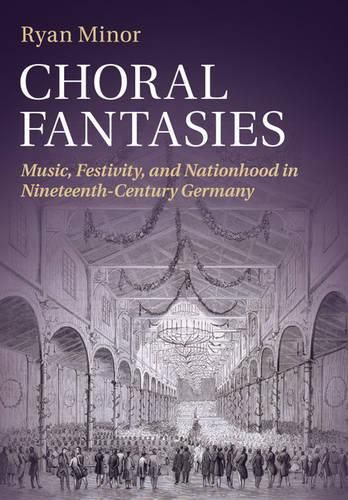Readings Newsletter
Become a Readings Member to make your shopping experience even easier.
Sign in or sign up for free!
You’re not far away from qualifying for FREE standard shipping within Australia
You’ve qualified for FREE standard shipping within Australia
The cart is loading…






Most histories of nineteenth-century music portray ‘the people’ merely as an audience, a passive spectator to the music performed around it. Yet, in this reappraisal of choral singing and public culture, Minor shows how a burgeoning German bourgeoisie sang of its own collective aspirations, mediated through the voice of celebrity composers. As both performer and idealized community, the chorus embodied the possibilities and limitations of a participatory, national identity. Starting with the many public festivals at which the chorus was a featured participant, Minor’s account of the music written for these occasions breaks new ground not only by taking seriously these often-neglected works, but also by showing how the contested ideals of German nationhood suffused the music itself. In situating both music and festive culture within the milieu of German bourgeois liberals, this study uncovers new connections between music and politics during a century that sought to redefine both spheres.
$9.00 standard shipping within Australia
FREE standard shipping within Australia for orders over $100.00
Express & International shipping calculated at checkout
Most histories of nineteenth-century music portray ‘the people’ merely as an audience, a passive spectator to the music performed around it. Yet, in this reappraisal of choral singing and public culture, Minor shows how a burgeoning German bourgeoisie sang of its own collective aspirations, mediated through the voice of celebrity composers. As both performer and idealized community, the chorus embodied the possibilities and limitations of a participatory, national identity. Starting with the many public festivals at which the chorus was a featured participant, Minor’s account of the music written for these occasions breaks new ground not only by taking seriously these often-neglected works, but also by showing how the contested ideals of German nationhood suffused the music itself. In situating both music and festive culture within the milieu of German bourgeois liberals, this study uncovers new connections between music and politics during a century that sought to redefine both spheres.